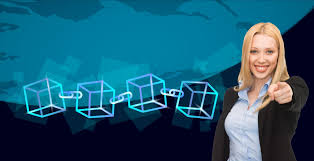
How to Hire Blockchain Development Team
Blockchain technology has evolved far beyond its cryptocurrency roots, heralding transformative applications across industries. From revolutionizing supply chain management to reshaping decentralized finance and securing voting systems, blockchain’s potential for innovation is boundless. Consequently, the demand for highly skilled blockchain developers has surged, making a strategic hiring approach essential. The blockchain industry is projected to surpass $1.2 trillion by 2030, with a staggering CAGR of 82.8%, offering developers an average annual salary exceeding $125,000. This guide equips you with advanced insights and best practices to identify and recruit exceptional blockchain talent aligned with your business objectives.
1. Articulate Your Blockchain Development Objectives and Requirements
Before embarking on the talent acquisition journey, clearly define your organization’s blockchain adoption goals. Are you optimizing supply chain transparency, developing decentralized applications (dApps), or enhancing financial transaction systems? Identifying your objectives clarifies the specific skills and expertise required in a candidate.
Blockchain technology encompasses diverse applications, including:
- Supply Chain Optimization
- Decentralized Finance (DeFi)
- Secure Voting Systems
- Digital Identity Management
- Health Record Integration
Once you’ve established your vision, assess whether your project necessitates private or public blockchain implementation, or advanced dApp and smart contract development.
2. Identify the Right Blockchain Specialist for Your Needs
Blockchain development spans various roles, each with distinct expertise. Streamline your recruitment process by pinpointing the specific specialization required:
- Core Blockchain Developer: Focuses on blockchain architecture, protocol development, and optimizing the blockchain ecosystem.
- Blockchain Software Developer: Engages in creating decentralized applications and smart contracts, handling both front-end and back-end development.
- Frontend Blockchain Developer: Designs intuitive user interfaces for blockchain applications, proficient in technologies like HTML, CSS, JavaScript, and frameworks such as React or Angular.
- Blockchain Application Developer: Specializes in back-end development, utilizing programming languages like C++, Java, or Go to build blockchain features and APIs.
- Smart Contract Engineer: Develops, tests, and deploys secure, efficient smart contracts, ensuring their functionality aligns with project requirements.
Defining the appropriate role and level of seniority—whether junior, mid-level, or senior—will streamline hiring and reduce the risk of skill mismatches.
3. Craft a Detailed and Persuasive Job Description
An articulate job description not only attracts top talent but also sets clear expectations. Key components to include:
Key Responsibilities
- Design, develop, and deploy blockchain-based applications, including dApps and smart contracts.
- Collaborate with cross-functional teams to assess blockchain requirements.
- Write, test, and deploy high-quality code for blockchain applications.
- Create user-centric interfaces for decentralized platforms.
- Stay abreast of emerging blockchain technologies and trends.
Qualifications and Skills
- Bachelor’s degree in Computer Science, Information Technology, or related fields.
- Proficiency in programming languages such as Python, JavaScript, Java, C++, Solidity, Rust, or Vyper.
- Expertise in blockchain fundamentals—cryptography, consensus mechanisms, and peer-to-peer networking.
- Experience with blockchain platforms like Ethereum, Binance Smart Chain, or Hyperledger.
- Strong knowledge of data structures, algorithms, and web development frameworks (e.g., React, Node.js).
Soft Skills
- Exceptional problem-solving and analytical capabilities.
- Strong communication and teamwork skills.
- Attention to detail and resource optimization.
4. Conduct Rigorous Skill Assessments
Given blockchain’s technical complexity, a meticulous evaluation of candidates’ expertise is crucial. Focus on:
Technical Proficiency
- Blockchain Architecture & Networks: Assess understanding of consensus mechanisms (e.g., Proof of Work, Proof of Stake) and decentralized systems.
- Cryptography: Ensure knowledge of hash functions, digital signatures, and encryption methodologies.
- Smart Contract Development: Test their ability to create, test, and deploy smart contracts using Solidity, Rust, or Vyper.
- dApp Development: Evaluate familiarity with web technologies and frameworks such as JavaScript, React, and Node.js.
- Programming Expertise: Test proficiency in languages like Python, Java, or C++ and implementation of advanced data structures.
Soft Skills
- Effective Communication: Ability to collaborate with diverse teams and simplify complex concepts for non-technical stakeholders.
- Adaptability: Commitment to continuous learning in a rapidly evolving blockchain landscape.
- Problem Solving: Analytical mindset to develop innovative solutions for complex challenges.
5. Conduct Comprehensive Final Interviews
The final interview stage should assess not only technical expertise but also cultural fit and alignment with your organization’s vision. Key areas to probe:
- Understanding of Business Goals: Gauge the candidate’s insight into how blockchain can address your specific challenges or drive innovation.
- Practical Experience: Request detailed accounts of past projects, challenges faced, and solutions implemented.
- Problem-Solving Scenarios: Present hypothetical blockchain problems to evaluate their critical thinking and technical skills in real time.
6. Key Considerations Before Hiring
To ensure a successful hiring process, prioritize the following:
- Defined Objectives: Clearly outline project goals and expectations before initiating recruitment.
- Job Description Clarity: Eliminate ambiguity to attract the right candidates.
- Cultural Fit: Foster an environment conducive to innovation, collaboration, and flexibility to appeal to top blockchain talent.
- Continuous Training: Encourage ongoing learning to keep teams updated with the latest blockchain advancements.
Conclusion
Recruiting blockchain developers requires a strategic and comprehensive approach. With the demand for blockchain solutions surging across industries, it’s imperative to identify the specific skills and qualities needed for your projects. By leveraging these advanced hiring practices, you can secure exceptional blockchain talent to unlock the transformative potential of this groundbreaking technology, propelling your business toward sustained innovation and success.





Leave Your Comment